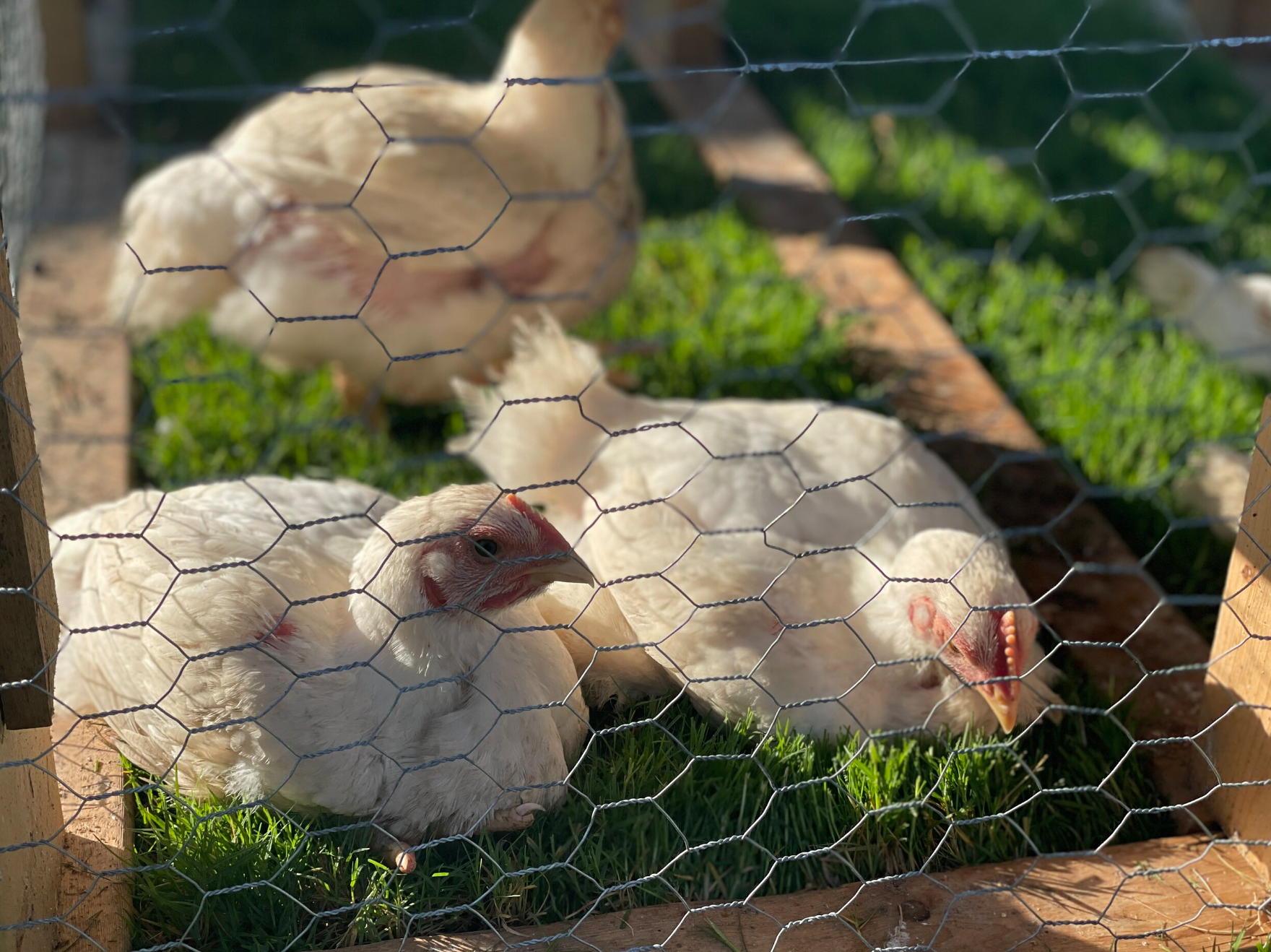
"Oh, taste and see that the LORD is good! Blessed is the man who takes refuge in him! "
~Psalm 34:8
The Difference
A New (Old) Kind of Chicken


The differences between our chicken and conventional/industrial raised chicken are numerous. We use the term “Always Outside” to note the fact that our chickens don’t just have ambiguous “access to the outdoors”, but actually live on pasture 24 hours a day, 7 days a week. Our birds use their beaks and talons to peck and scratch for bugs, worms, grasses, seeds, and more. Instead of using antibiotics to fight disease within the flock, we use a healthy environment of pasture, sunshine, fresh air, and space to prevent sickness and provide our animals with a functioning immune system. Instead of marketing vegetarian-fed chicken (chickens are not vegetarians), we want our chickens to eat as many bugs and worms as possible.
The result? Real chicken. We could call it pasture-raised, free range, cage-free, local, beyond organic, humane, biodynamic, sustainable, regenerative, and more. But 100 years ago, it was just called chicken. Let’s rewind poultry production back a century and experience the rich flavor that can only come from chickens that live outside on pasture.
Nutritionally Superior
- Pasture Raised Poultry has 21% less fat than conventional chicken, and 30% less saturated fat. It's what happens when they're outside running around all day.
- Also has 50% more Vitamin A compared to conventionally raised broilers. Forage much? Our birds are eating grass, bugs, seeds, grains, and worms 24/7/365.
- Has nearly 3 times more Omega 3 than conventional, free range, or industrial organic chicken. That's because they have a species appropriate diet and a good life outside on pasture.


